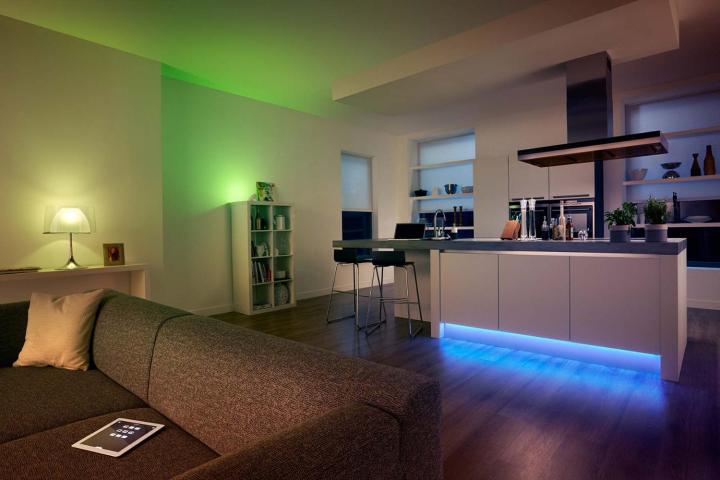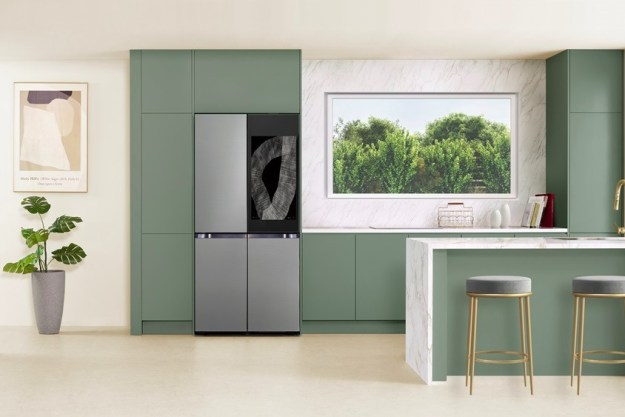
So says Bluetooth’s senior branding director, Errett Kroeter, who sat down with Digital Trends to make the case for Bluetooth as the common language for your future smart home.
“What has held smart-home tech back is all these niche products, where you have to buy a service from a service provider, and get locked into an expensive contract,” he said. When Bluetooth becomes the common language, “People will see, ‘Oh, it’s a Bluetooth product,’ and that will be the end of the conversation. We don’t see the smart home taking off in the monolithic, you-buy-everything-from-us way. People don’t like that. Our goal is to make every product work together and not be manufacturer-specific.”
Is it too good to be true?
He has a good point. Bluetooth tech is in 96-percent of the smartphones sold today, and the vast majority of us use it often, providing a level of familiarity we’re not used to seeing in smart, connected devices for the home. If connecting a smart thermostat were as simple as connecting to a fitness band, perhaps we would see more consumers piling on.

“We think people want to buy a product, install in their house, and first of all not need an engineering degree to do it, and that when it’s done, it just works. Because of Bluetooth, you can do that,” Kroeter continued.
It all sounds way too good to be true. The Internet of Things, as it is now, isn’t simple, and that complicated nature is echoed by how poorly the concept is being sold to us, as consumers. Is there something Bluetooth is holding back in its utopian description? Well, the change is not going to happen tomorrow.
Things are going to get meshy
First, Bluetooth has to address some of its current technical limitations to make the whole thing possible. “There are some enabling technologies that will be coming in Bluetooth in the next year or so,” admitted Kroeter, “that will give the system more capacity and the range to cover the whole connected home.”
This will also allow you to use something besides your smartphone to control every device, avoiding problems related to using a mobile device as a hub. However, a central hub like the Nest or your electric meter won’t be absolutely necessary in the Bluetooth-controlled connected home. For example, after using an app to perform the initial setup, a smart lighting system connected using Bluetooth could operate independently.
If you’re wondering how Bluetooth will solve its short range problem, in the next year, a version will introduce a technology called mesh, where each individual Bluetooth device extends the network. The more things that are connected to it, the larger the network gets. Mesh will be a standardized solution, so any manufacturer will be able to add it into their hardware. Bluetooth’s not trying to steal the limelight from Wi-Fi, either. It sees it as a complementary technology, and some products will come with both depending on their function.
A rallying cry
Then, it’s that old problem of getting everyone else onboard. For Bluetooth to make our smart-home dreams come true, manufacturers must adopt certain standards and solve challenges like how data is going to be shared, and where the associated applications will be stored. Kroeter argues that by adopting the open Bluetooth standard, the Internet of Things has a better chance of going mainstream.
Bluetooth has only been working on its smart-home plans for about a year, coinciding with the explosion in interest regarding the Internet of Things. “Once there is a key enabling technology, things can happen really fast,” Kroeter said, and used Bluetooth Smart’s introduction in 2010, and its influence on the growing wearables market two years later as a parallel. If everything goes to plan for Bluetooth, Kroeter says that in three years, the smart home “will look very different.”
The trouble is, Bluetooth is just one of many players, and others on the field include Google, Microsoft, Apple, and Intel; all have their own ideas on how to make us buy into a smart home. Somewhere in the middle is us, not buying into the IoT until a clear turf war victor emerges. Convincing us one has arrived is perhaps Bluetooth’s, and everyone else’s, real challenge.
Editors' Recommendations
- SimpliSafe is now using AI to prevent burglars from entering your home
- The Skylight Cal Max is a 27-inch smart calendar that might replace your smart display
- Pawport brings security (and smarts) to your existing pet door
- Samsung Ballie is a rolling smart home hub with a built-in projector
- Kohler reveals luxurious smart home products that turn your bathroom into a spa




